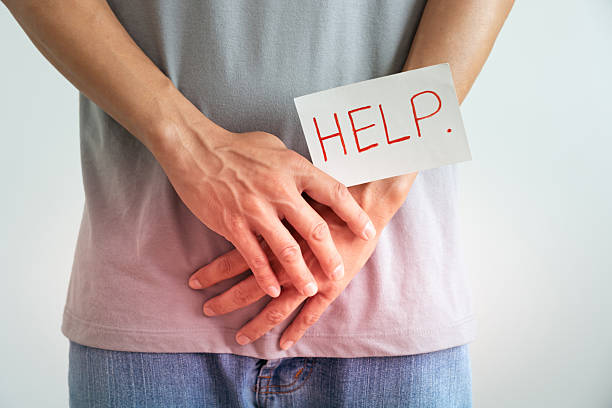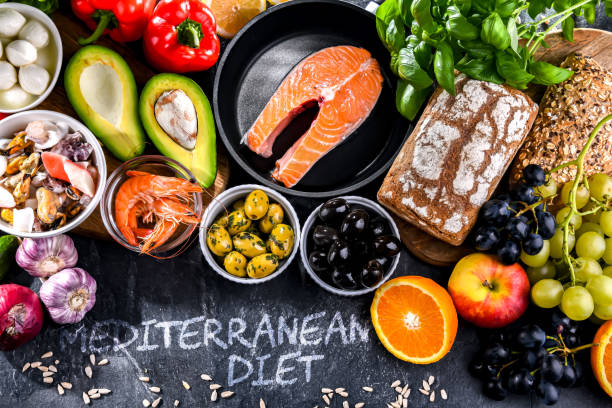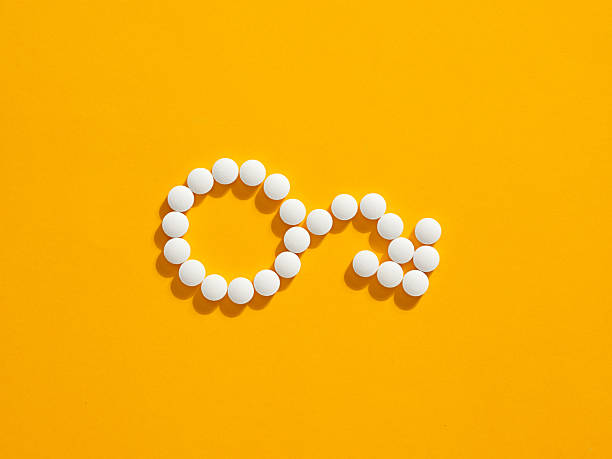Introduction
Erectile dysfunction (ED) is more common than many men realize. In fact, studies suggest that over 30 million men in the U.S. experience it at some point in their lives, and the numbers grow higher with age. But ED is not just about aging. It can also be linked to health conditions like diabetes, high blood pressure, obesity, and stress. Many men turn to medication first, but doctors often remind patients that lifestyle—especially diet—can play a major role in sexual health.
The question is: can your diet improve ED? Science says yes, to a point. What you eat affects your blood vessels, hormone levels, energy, and even mood. Certain foods support better blood flow, hormone balance, and heart health—all of which are important for sexual performance. On the flip side, unhealthy eating habits such as too much sugar, fried foods, or processed meats may make ED worse by damaging circulation and lowering testosterone.
The good news is that small changes can add up. By eating more nutrient-rich foods and cutting back on harmful ones, men may see improvements not just in erections but also in overall health. Let’s dive into what science says about food and sexual health, and which diets and foods may help.
What Causes Erectile Dysfunction?
Before we talk about food, it’s helpful to understand the main causes of erectile dysfunction (ED). Knowing why ED happens can show us why diet and lifestyle matter so much. Some common factors include:
Poor blood flow – Erections depend on healthy circulation. If blood vessels are blocked or narrowed by plaque buildup, it becomes harder for enough blood to reach the penis. This is why conditions like high blood pressure and heart disease are closely linked to ED.
Hormone imbalance – Low testosterone is one of the biggest hormone issues tied to sexual health. When testosterone levels drop, sex drive may decrease, and it may be harder to get or keep an erection. Other hormones, like too much cortisol from stress, can also have a negative effect.
Nerve damage – Nerves carry the signals from the brain that trigger an erection. Diseases like diabetes, multiple sclerosis, or even long-term injuries can damage these nerves and disrupt sexual function.
Stress and mental health – The brain plays a big role in sexual performance. Anxiety, depression, or relationship problems can create a cycle where stress makes ED worse, and ED adds more stress.
Unhealthy lifestyle choices – Habits such as smoking, heavy drinking, lack of sleep, or no exercise all raise the risk of ED. These behaviors hurt circulation, hormone levels, and energy.
Since diet directly affects circulation, hormones, weight, and overall health, it’s no surprise that what you eat may influence your sexual performance. A poor diet can raise the risk of ED, while the right foods may help protect against it and even improve symptoms over time.

How Diet Impacts ED
1. Blood Flow and Heart Health
The penis relies on strong and steady blood flow to achieve and maintain an erection. When arteries and blood vessels are healthy, blood can move freely and fill the erectile tissue. But diets high in processed foods, saturated fats, and added sugars can damage this process. These foods may raise cholesterol, increase blood pressure, and cause plaque buildup in the arteries. Over time, clogged arteries make it harder for blood to reach not only the heart and brain but also the penis, which can lead to erectile dysfunction.
On the other hand, eating a diet rich in fruits, vegetables, whole grains, nuts, and lean proteins helps protect circulation and supports vascular health. These foods are full of antioxidants, fiber, and vitamins that improve the flexibility of blood vessels and reduce inflammation.
In fact, a study published in The American Journal of Clinical Nutrition found that men who ate more flavonoid-rich foods—such as berries, citrus fruits, and grapes—had a much lower risk of ED. Flavonoids are natural plant compounds that help widen blood vessels and improve blood flow. This shows that even small diet changes, like adding more colorful fruits and vegetables, can make a real difference in sexual health.
2. Hormone Balance
Testosterone is the main male sex hormone, and it plays a key role in both sex drive and erectile function. When testosterone levels are healthy, men usually have more energy, stronger libido, and better performance. But when levels drop, it may cause low desire, fatigue, mood changes, and problems getting or keeping an erection.
Certain nutrients are essential for making and maintaining testosterone. Zinc (found in foods like oysters, pumpkin seeds, and beef) helps the body produce testosterone naturally. Vitamin D is also important, and low levels have been linked to reduced testosterone. Spending time in the sun or eating foods like salmon and fortified dairy can help boost vitamin D. Healthy fats, such as omega-3 fatty acids from fish, nuts, and olive oil, also support hormone balance.
On the other hand, diets lacking these nutrients may lead to lower testosterone levels. Too much processed food, refined sugar, and trans fats may not only hurt heart health but also disrupt hormone production. This is why men who want to improve sexual health should focus on a nutrient-rich diet that fuels the body’s hormone system.
3. Weight and Insulin Resistance
Obesity and type 2 diabetes are strongly linked to erectile dysfunction (ED). Carrying excess body fat can disrupt hormone balance and lower testosterone, which directly affects sex drive and performance. Extra weight also puts strain on the heart and blood vessels, making it harder for blood to circulate properly.
Diabetes adds another layer of risk. When the body becomes insulin resistant, blood sugar levels stay high. Over time, this damages the blood vessels and nerves that are needed for erections. In fact, men with diabetes are more likely to experience ED earlier in life compared to men without diabetes.
The good news is that healthy eating can help control both weight and blood sugar, lowering the risk of ED. Diets rich in whole grains, vegetables, lean proteins, and healthy fats support stable blood sugar levels and promote weight loss. Even small changes—like cutting back on sugary drinks or processed snacks—can improve insulin sensitivity and circulation. This makes healthy eating one of the most effective natural ways to reduce ED risk in men with obesity or diabetes.
The Best Diets for Erectile Dysfunction
So, can changing your eating habits improve ED? Research suggests yes. Here are some of the most effective dietary patterns.
The Mediterranean Diet

Often called the “heart-healthy diet,” the Mediterranean diet focuses on:
- Fresh fruits and vegetables
- Whole grains
- Fish and lean proteins
- Olive oil and nuts
- Limited red meat and processed foods
Studies show this diet may improve both cardiovascular and sexual health. A 2018 study in The Journal of Sexual Medicine found that men who followed the Mediterranean diet had better erectile function scores.
The DASH Diet
The DASH (Dietary Approaches to Stop Hypertension) diet is designed to lower blood pressure. Since high blood pressure is a major ED risk factor, this diet can help. It emphasizes:
- Vegetables and fruits
- Whole grains
- Low-fat dairy
- Lean proteins like chicken and fish
- Limited salt and added sugars
Plant-Based Diets
Plant-forward diets reduce inflammation and improve vascular health. They are also rich in antioxidants, which protect blood vessels. Even small changes—like swapping red meat for beans or adding more leafy greens—may support sexual health.
Foods That May Help Improve ED
Certain foods stand out for their ability to boost circulation, hormones, and overall wellness. Adding these to your diet may help with ED.
Fruits and Vegetables
- Leafy greens (spinach, kale) – High in nitrates, which help relax blood vessels.
- Beets – Another nitrate-rich food that boosts blood flow.
- Berries (blueberries, strawberries) – Packed with flavonoids linked to reduced ED risk.
- Citrus fruits (oranges, grapefruit) – Support circulation and provide vitamin C.
Protein Sources
- Fatty fish (salmon, mackerel) – Rich in omega-3 fatty acids, good for heart health.
- Lean poultry – A healthier alternative to red meat.
- Legumes (beans, lentils) – Provide fiber, protein, and heart-friendly nutrients.
Nuts and Seeds
- Walnuts – Contain L-arginine, which helps blood vessels relax.
- Pumpkin seeds – High in zinc, important for testosterone production.
- Almonds – Provide healthy fats that support hormone balance.
Whole Grains
- Oats, brown rice, quinoa – Help regulate blood sugar and reduce cholesterol.
Dark Chocolate
- Rich in flavonoids that may improve circulation. (Just stick to moderate portions!)
Foods to Limit or Avoid
Just as some foods help, others may harm sexual health. If you’re concerned about ED, try to cut back on:
- Processed meats (bacon, sausages) – High in saturated fats and linked to heart disease.
- Sugary drinks – Can spike blood sugar and increase risk of diabetes.
- Fried and fast foods – Promote inflammation and poor circulation.
- Excessive alcohol – May lower testosterone and damage blood vessels.
Lifestyle Changes That Complement a Healthy Diet
Diet alone isn’t the full solution. Pairing healthy eating with other habits can improve results.
- Exercise regularly – Boosts circulation and testosterone levels.
- Quit smoking – Smoking damages blood vessels and makes ED worse.
- Manage stress – Meditation, therapy, or mindfulness can reduce performance anxiety.
- Get enough sleep – Poor sleep lowers testosterone and sexual function.

When to See a Doctor
While diet changes can help, ED is sometimes a sign of an underlying condition. You should talk to a doctor if:
- ED happens often and doesn’t improve with lifestyle changes
- You have other symptoms like chest pain or shortness of breath
- You have diabetes, high blood pressure, or heart disease
Your doctor may recommend blood tests, medications, or other treatments alongside dietary changes.
Conclusion: Can Your Diet Improve ED?
The short answer: yes, diet can play a major role in sexual health. Eating more fruits, vegetables, whole grains, nuts, and lean proteins while cutting back on processed foods and excess sugar can improve blood flow, hormone balance, and energy levels.
While food isn’t a quick fix, small changes add up. Over time, a healthier diet can support stronger erections and better overall health.
👉 If you’re struggling with ED, start by looking at your plate. Simple swaps today may make a big difference tomorrow.

